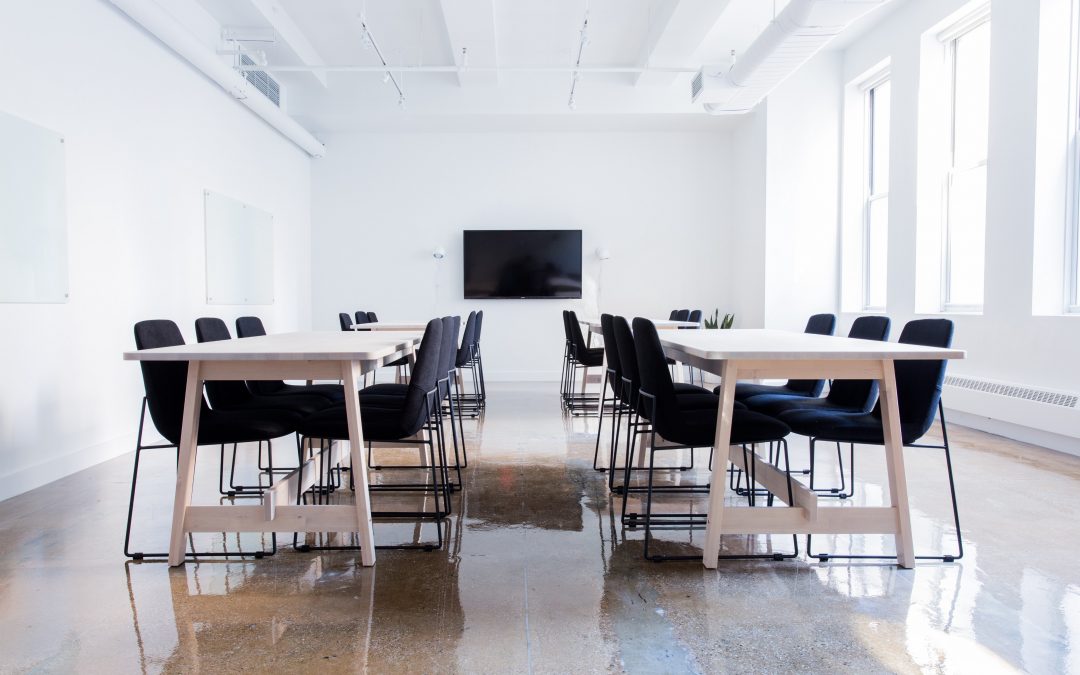In the AV industry, for as long as I can remember, the idea of being able to have an AV system of some kind and making it as invisible as possible has been a request of clients. At the end of the day, can you ever really hide all of the equipment in a system? Obviously, this depends entirely on the installation and equipment being used. If you think about the size of technology, meaning the physical size of gear, we have seen certain things shrink in size while maintaining an acceptable level of performance. In addition, we have seen some changes in technology. From projection to displays, speakers, microphones, control systems, and the pieces that make it all work.
Concealing Projectors in Conference Rooms
When looking at a conference room setting there are certain things you can’t avoid seeing. For example, if you have a presentation you are going to have some kind of projection or display to show the content. But, if projection is being used it’s now easier to conceal projectors while using lift systems or just smaller projectors with more capabilities, making it easier to leave it exposed and make the necessary adjustments to get the picture you want and need.
Concealing AV in Small Spaces
LED displays are a big deal now in small to medium-sized spaces as they are more affordable, require less installation work, and look pretty sharp. If it’s so important that the display not be seen when not in use, there are ways to conceal the display in a wall or even overlay it with some kind of whiteboard or even a framed picture. But, at what expense is hiding this technology really necessary? Obviously, if a client demands the ability to have these types of things hidden this may prompt some discussion.
If you think about other aspects of AV systems in small space, you have to put the rack and control equipment somewhere. Now, in a really efficient system, some of these items live in the ceiling as part of the projection mounting. Others require a little more equipment and there may be a furniture-like credenza that has accommodations for rack equipment. In a larger space, you can actually put the control equipment in a closet somewhere else, out of site. There are times when that rack equipment has fan noise that needs to be dampened or silenced to avoid creating noise in a room commonly used for video and teleconference calls. In a small space this may be a challenge, but by using furniture racks you can oftentimes accomplish a very clean solution while achieving the quiet space you need.
Concealing AV Equipment in Larger Spaces
Now, in larger spaces, especially in performance spaces, churches, hospitality, and restaurants, having the AV equipment exposed is not only acceptable but desire as part of the aesthetics. Having worked with a lot of traditional looking churches there is often the discussion of finding ways to conceal the AV and lighting systems as much as possible. From an audio perspective, many times this is quite possible with proper planning and execution with the right gear. Manufacturers have taken this need into consideration and many have provided gear that makes this need very accessible.
Planning and Priorities for an AV Project
Going back to asking the question, “should AV be seen?”, depending on the client and location will pose the common discussion of priorities. In a project, there are three criteria that drive planning discussions. Those are timing, cost, and quality. The saying then goes, you can only pick two. When talking to a client or if you are planning a space that requires AV and possibly even lighting equipment, and you wish to conceal it as much as possible while still achieving great performance, it’s important to make sure you have the time to design and engineer the system, weigh in the quality of equipment that may be required to accomplish such a design, then most importantly, make sure the budget supports the desired outcome of the project.
With the right planning, design, and budget, anything is possible. It’s just important to be realistic and to make all expectations known up front. If the project supports it, getting renderings done to show the visual concept of the desired design is helpful to confirm an approach. I would like to think that these kinds of steps go without saying. Stealthy AV equipment is readily available and can make for a very sleek and highly functional project, just decide ahead of time what you are willing to see exposed both when in use and when not in use to manage the expectations of a project.
Commercial AV design, sales & business development professional, writer, teacher/trainer, outdoor enthusiast, hobbiest film photographer, BJJ practitioner.

